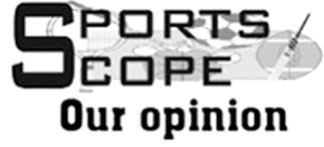 Sporting organisations in Guyana have not yet adapted to the new norm and this does not augur well for the future given that, from all indications, COVID-19 will be with us for some time.
Sporting organisations in Guyana have not yet adapted to the new norm and this does not augur well for the future given that, from all indications, COVID-19 will be with us for some time.
An example is be the ‘Kashif and Shanghai (K&S) Bounceback Classic’, which, unfortunately, was not staged in either a ‘bubble environment or at a biologically secure venue’.
Apparently, those pseudo-sophisticated terms have no bearing in local sports where safety is just an afterthought following years of cultural disdain for such concerns by organisers and promoters.
In the case of the K&S Classic, players and officials were only tested once for the novel coronavirus and they were then allowed to leave the venue and return to their respective residences after each match.
Although there were only three matches in two days of play, this was a recipe for disaster, and highlights the challenges now confronting the Guyana Football Federation (GFF).
It is not unfair to say that if the above approach continues to be applied, it is almost certain to weaponise the football fraternity as a vector for the spread of the disease once this proposal is rolled out on the grand scale as articulated by the GFF’s ambitious almanac of activities.
Public transportation, businesses, and entertainment venues, are unquestionably among the leading culprits for the spread of infection.
Unfortunately, unregulated sports events, such as the recent football tournament in Buxton which did not have the approval of the GFF, will soon extend the list, especially if the GFF’s vision is allowed to come to fruition without the common sense application of scientifically proven protocols.
If the GFF is committed to restarting football on a national scale, following the publication of its calendar of events and the subsequent approval of the National Task Force, then an all-encompassing effort must be made to protect the players and officials, who will be asked to toil in these difficult circumstances without any standardised reward.
The international standard bearer currently is the English Premier League (EPL), the world’s richest and most populous league, which conducts hundreds of tests on the players and officials every week. At the time of writing, over 22 rounds had been played, and it is soon expected that the league will administer tests twice weekly, following numerous outbreaks within the players’ ranks.
While perspective needs to be applied to the local scenario, which will be devoid of large groups of spectators, the mere fact that the respective participants will be allowed to return to their homes and mingle in public spaces, highlights the importance of the need for stringent and structured testing procedures, with the ultimate goal of cultivating a safe and healthy work environment.
Will the GFF commit to ensuring that testing will be performed on players and officials on a weekly basis, at the very minimum, if the green light for a restart is given?
Will the aforesaid also apply to the respective member associations, who will also be anxious to roll out their football programmes?
Who will underwrite the funds for this ambitious endeavour? Will the Ministry of Sport and the National Sports Commission provide any assistance or support? There are so many questions which need to be answered as one begins to contemplate all the ramifications here.
Even an economic argument cannot be realistically justified in these times of uncertainty. The importance of football, especially in Europe and South America, cannot be overstated, given its financial impact on some countries’ GDP. In the context of Guyana, sports is still more of a pastime rather than a career, and since earnings from football are rather meagre, players still have to hold down regular jobs. In a country where football is still the realm of the underprivileged, the lack of important safeguards will simply increase the chances of exposing one group which is already considered as high risk.
If safety from contracting COVID-19 cannot be guaranteed by the powers within the corridors of Section K Campbellville, then the resumption of football should be shelved until a practical structure can be put in place for the safe return of the discipline. There should be no lights, cameras, or action, at the expense of the health of the players and officials just simply to put on a show.





